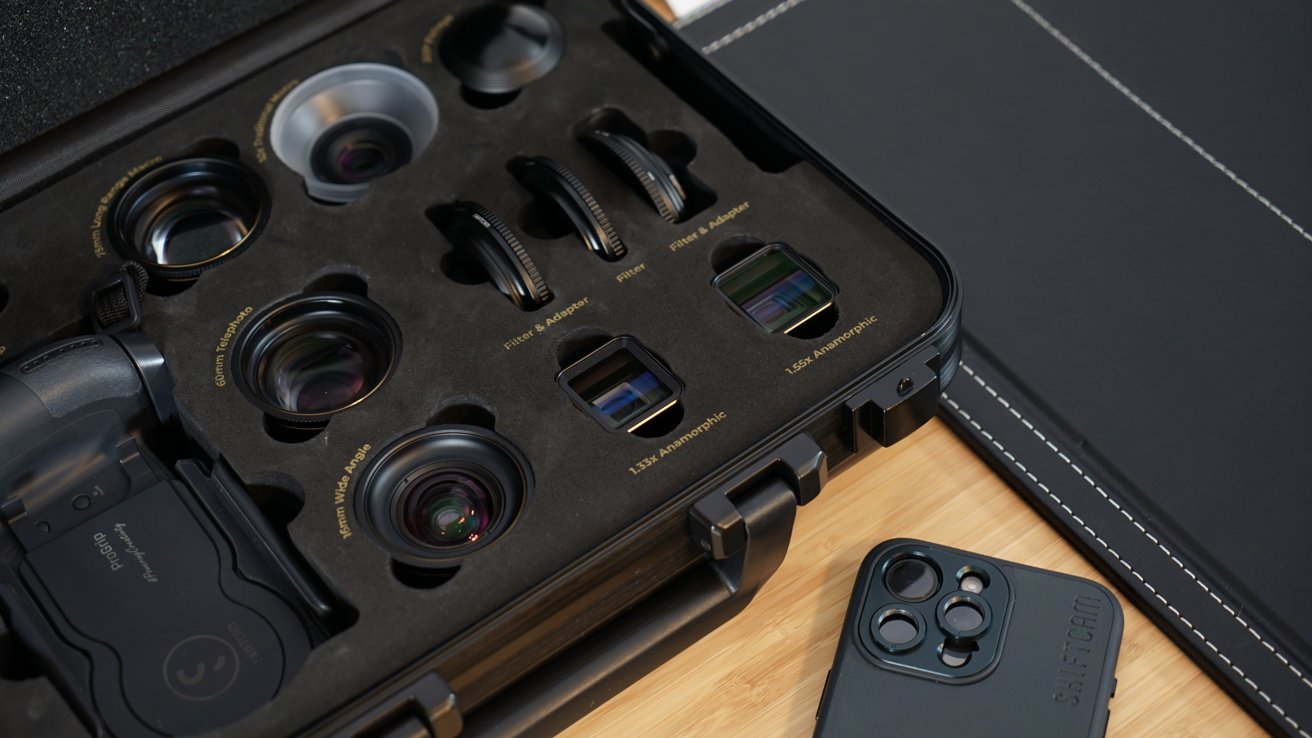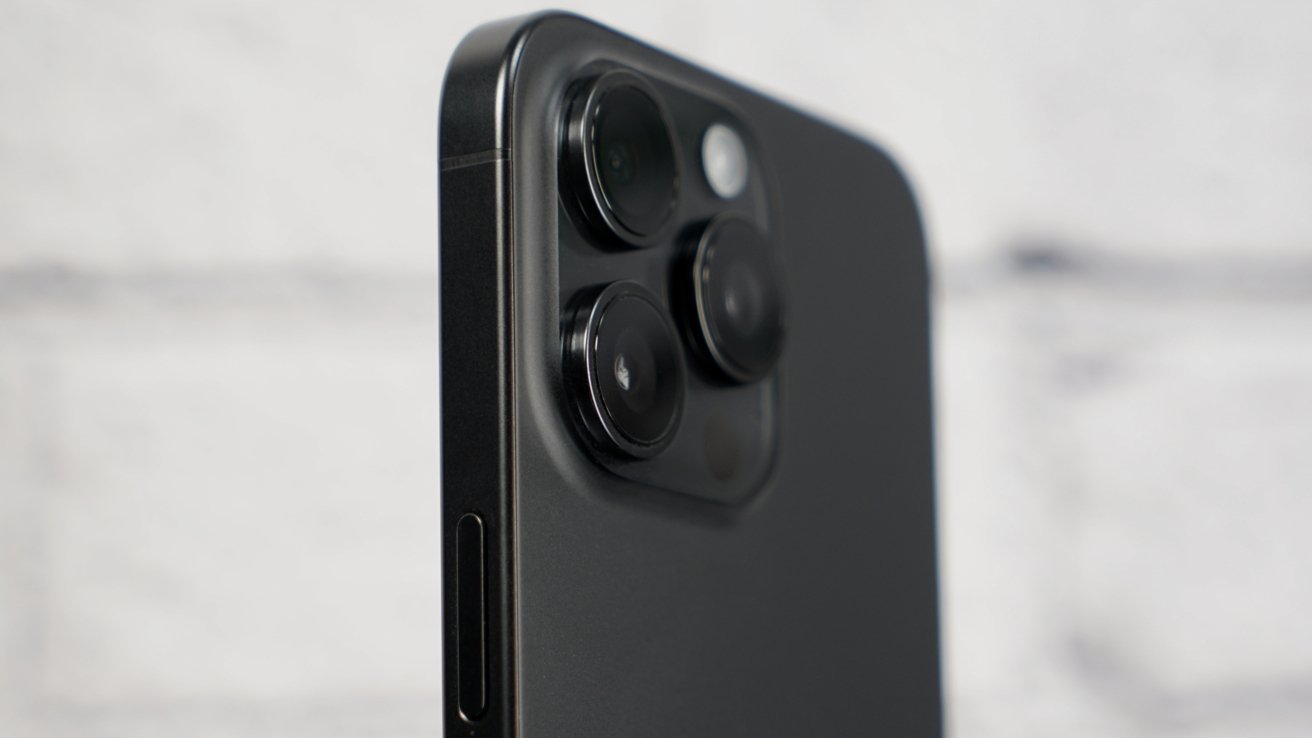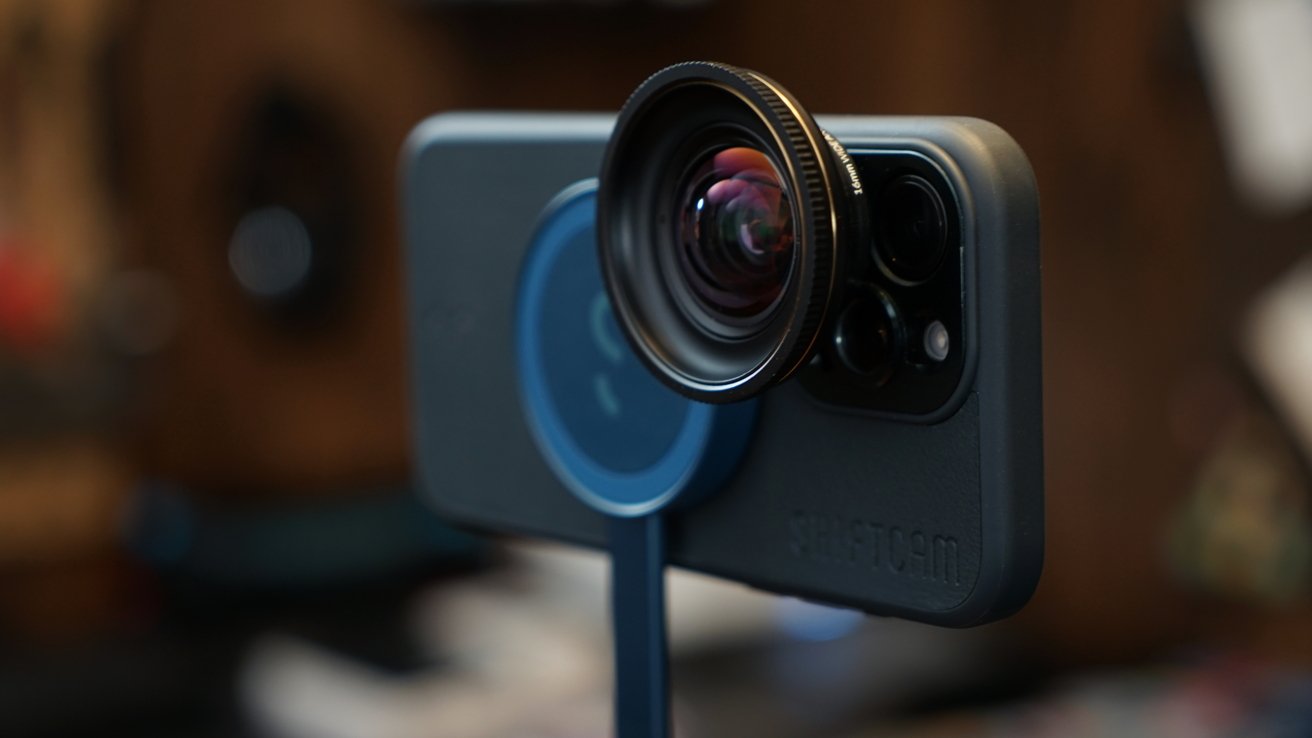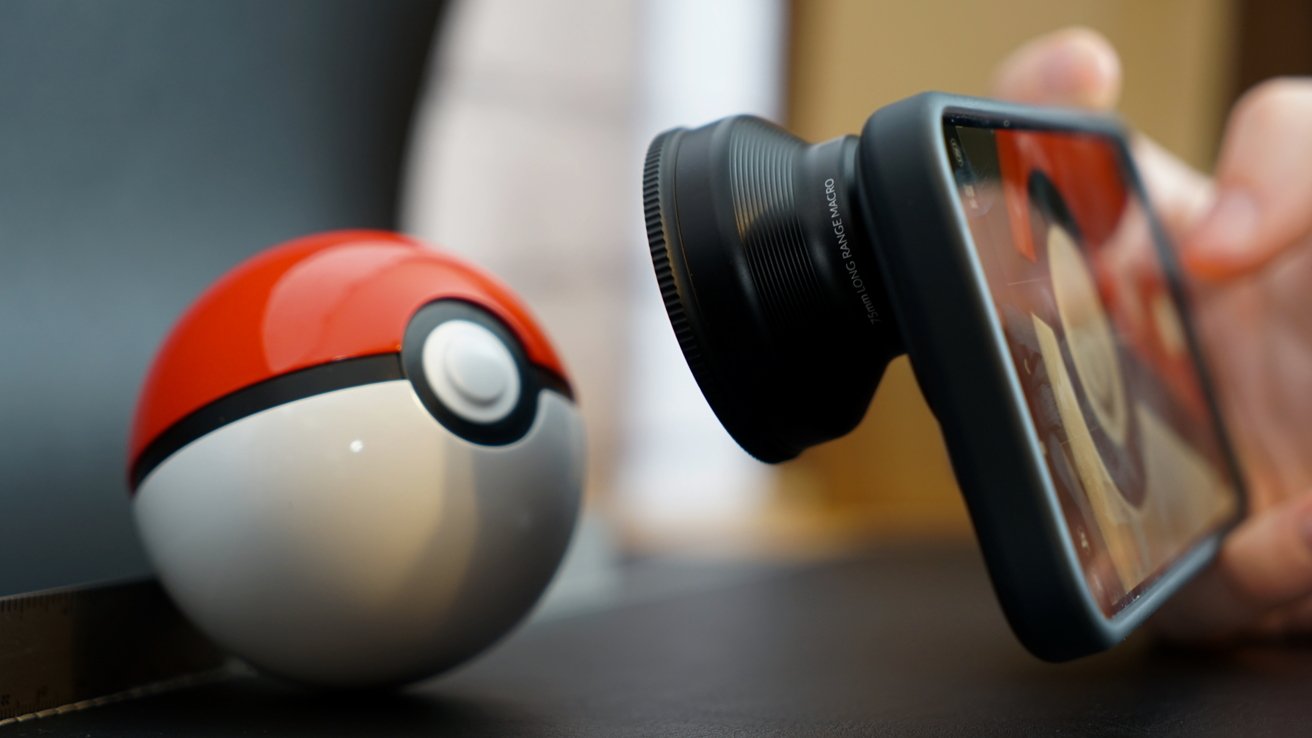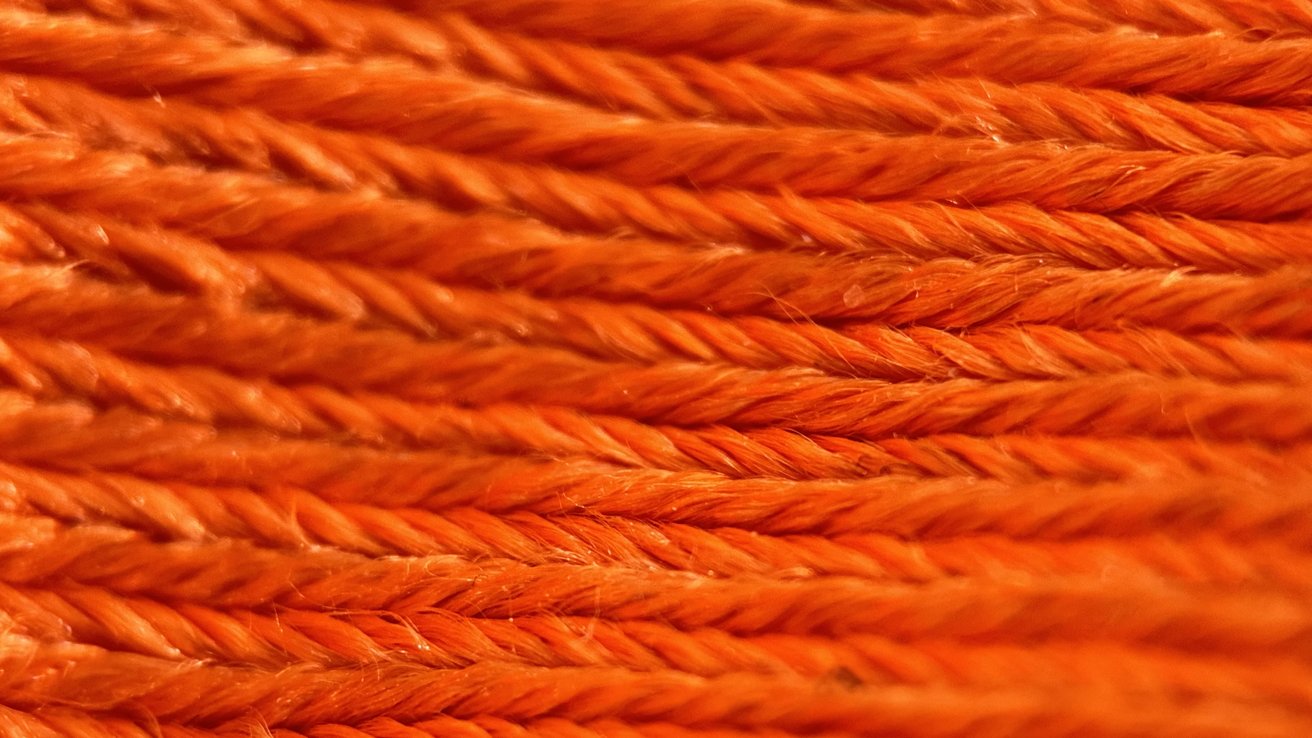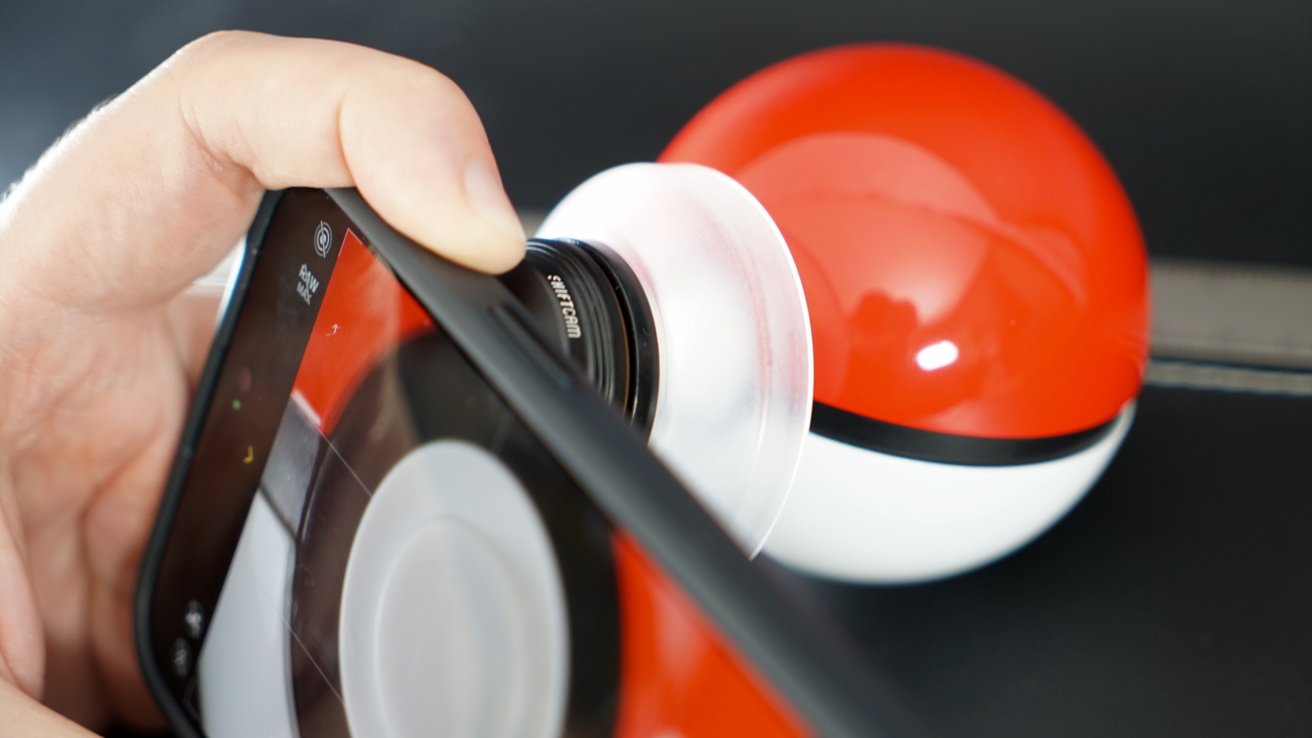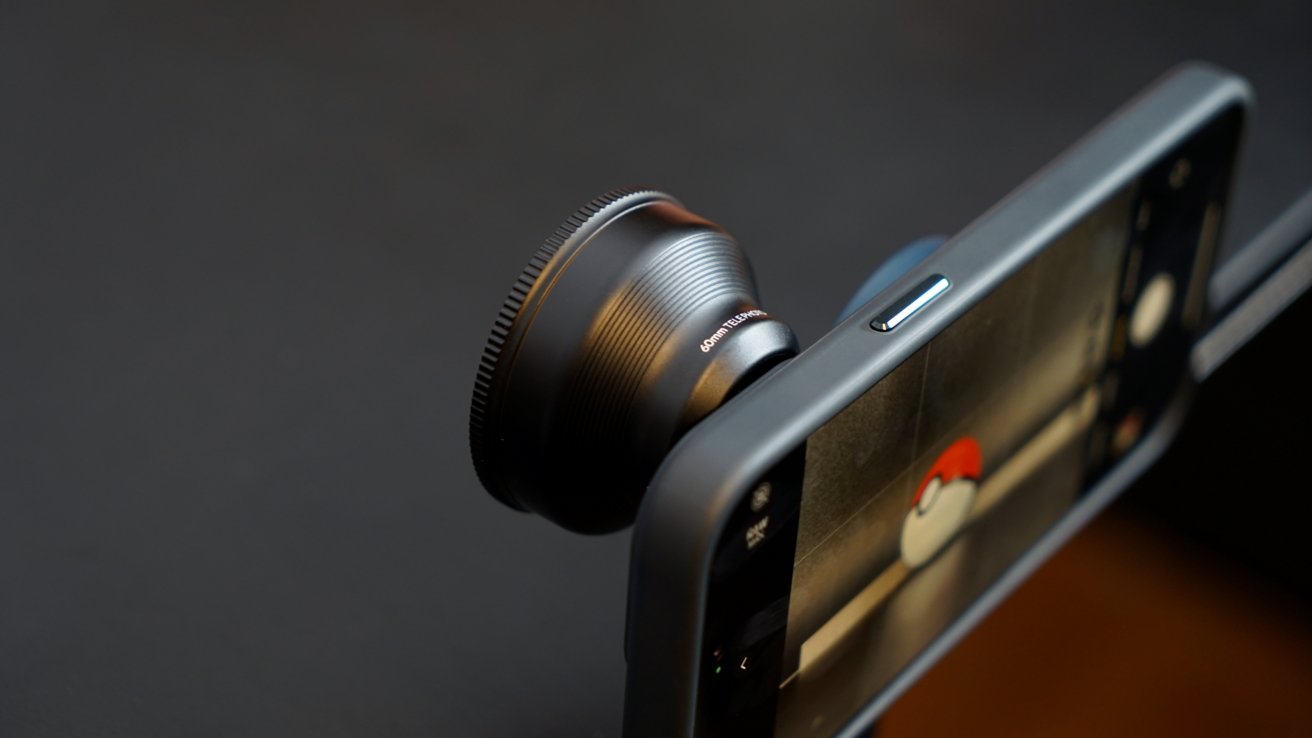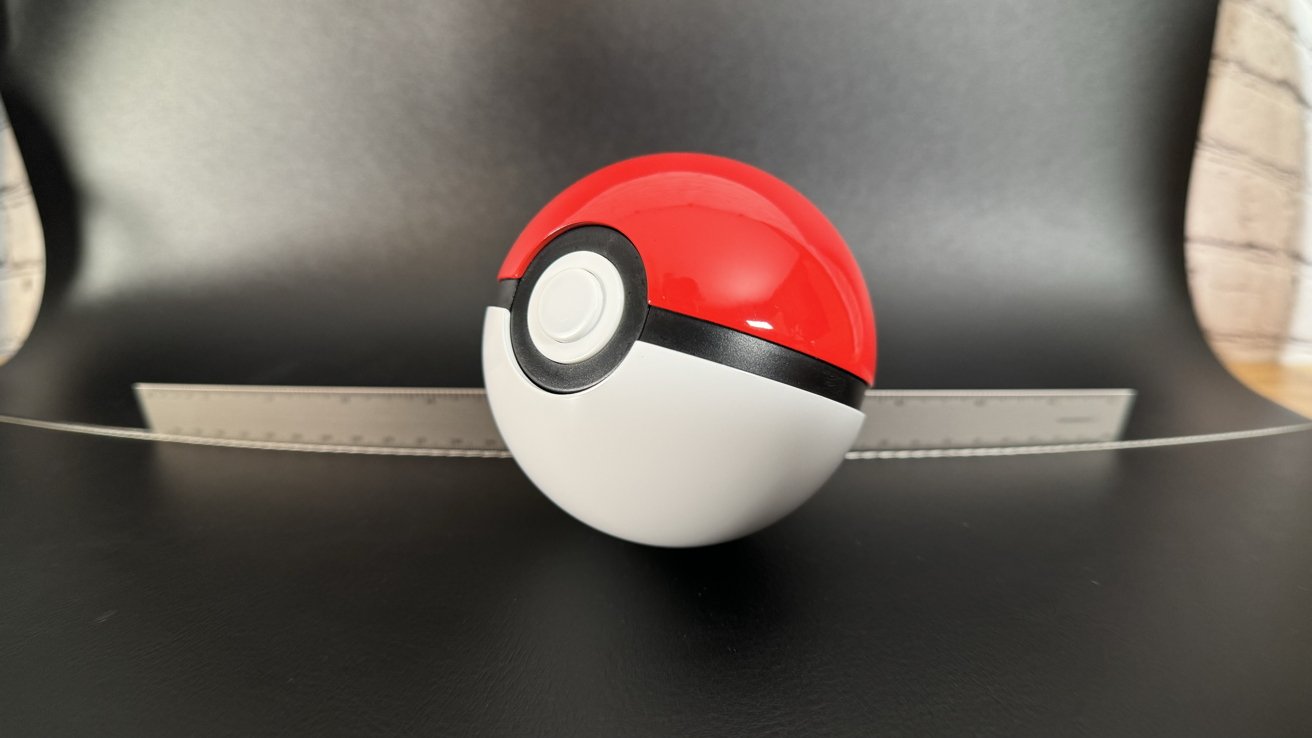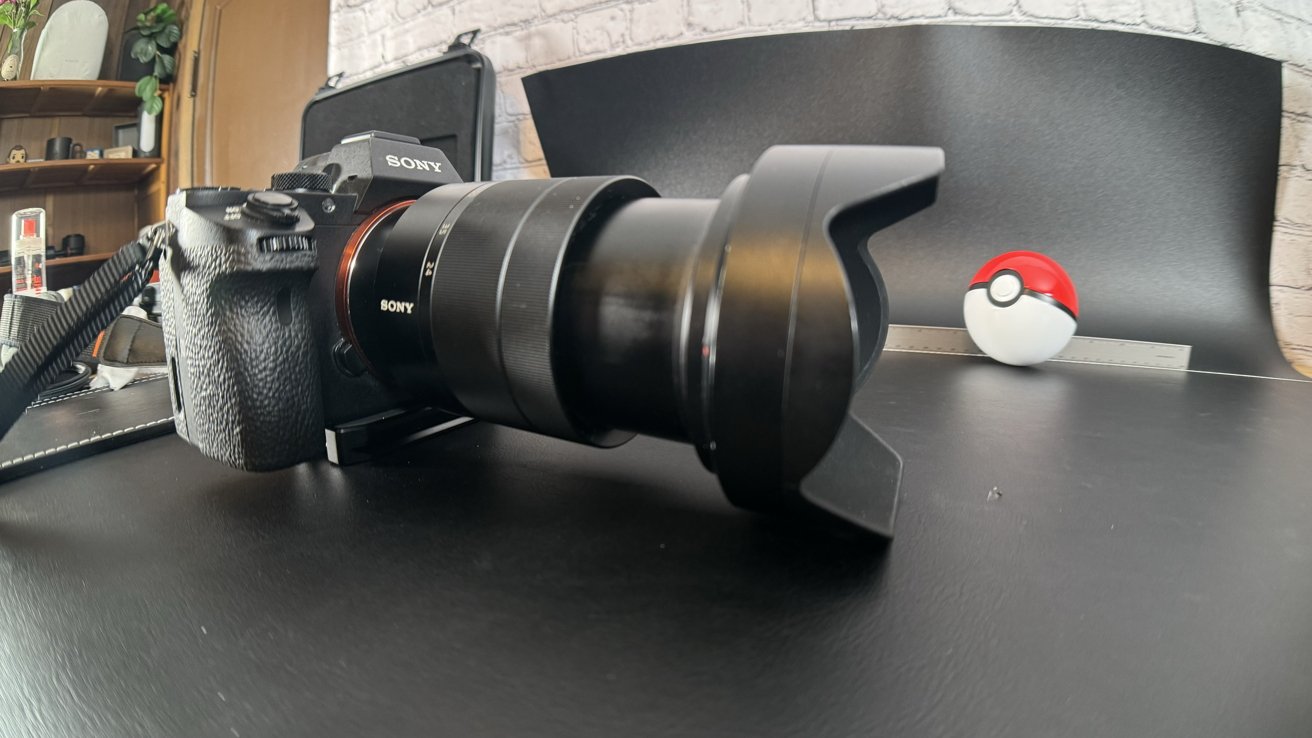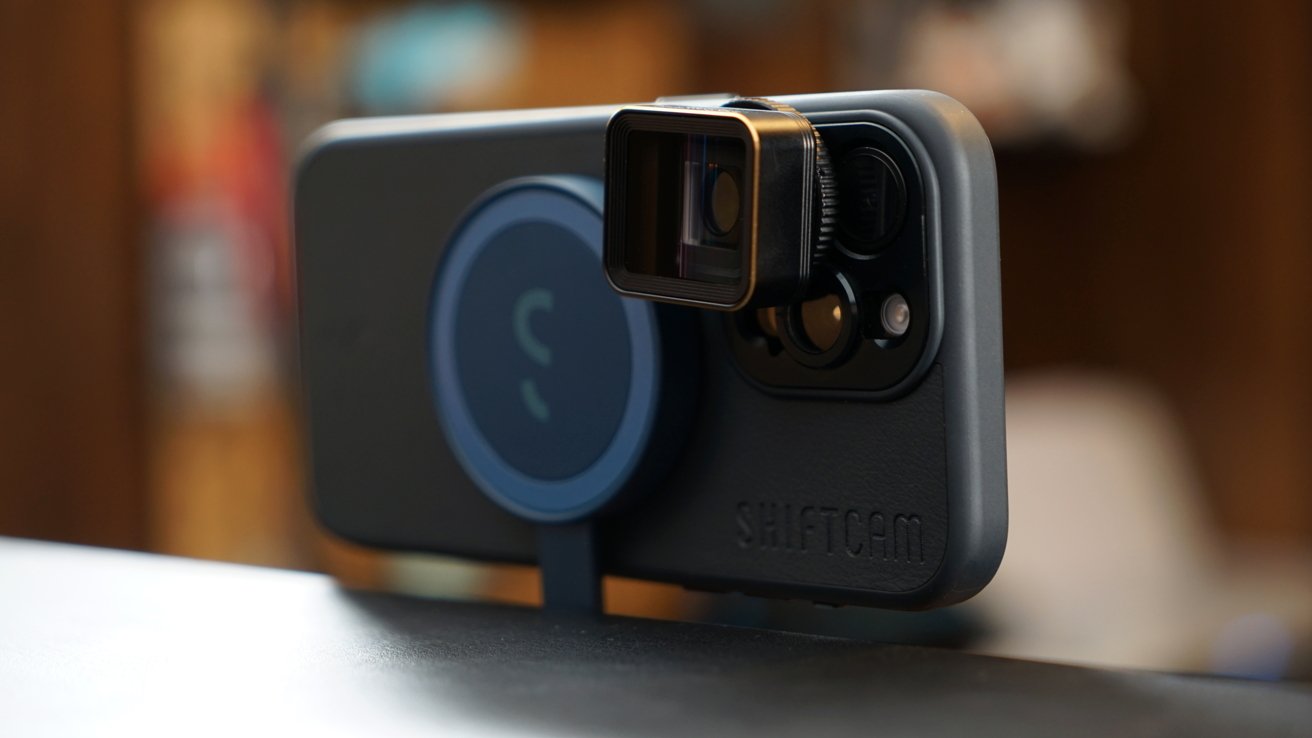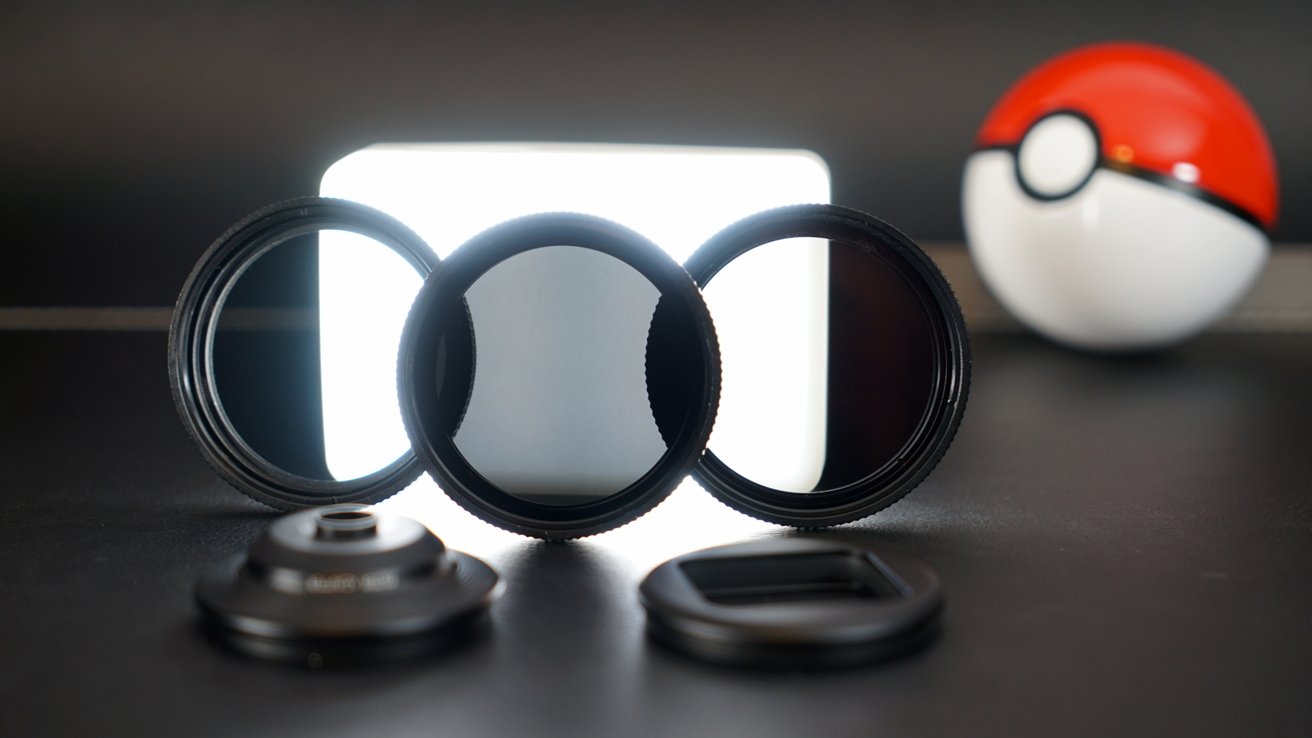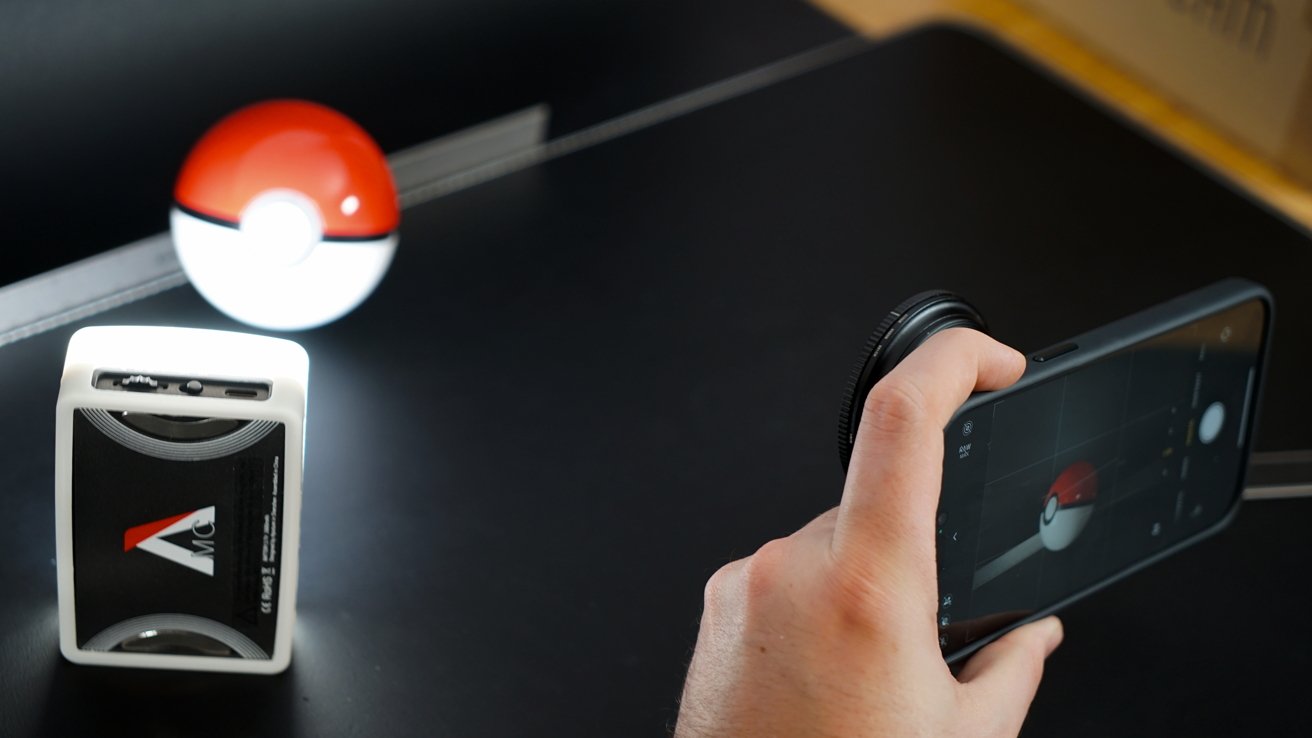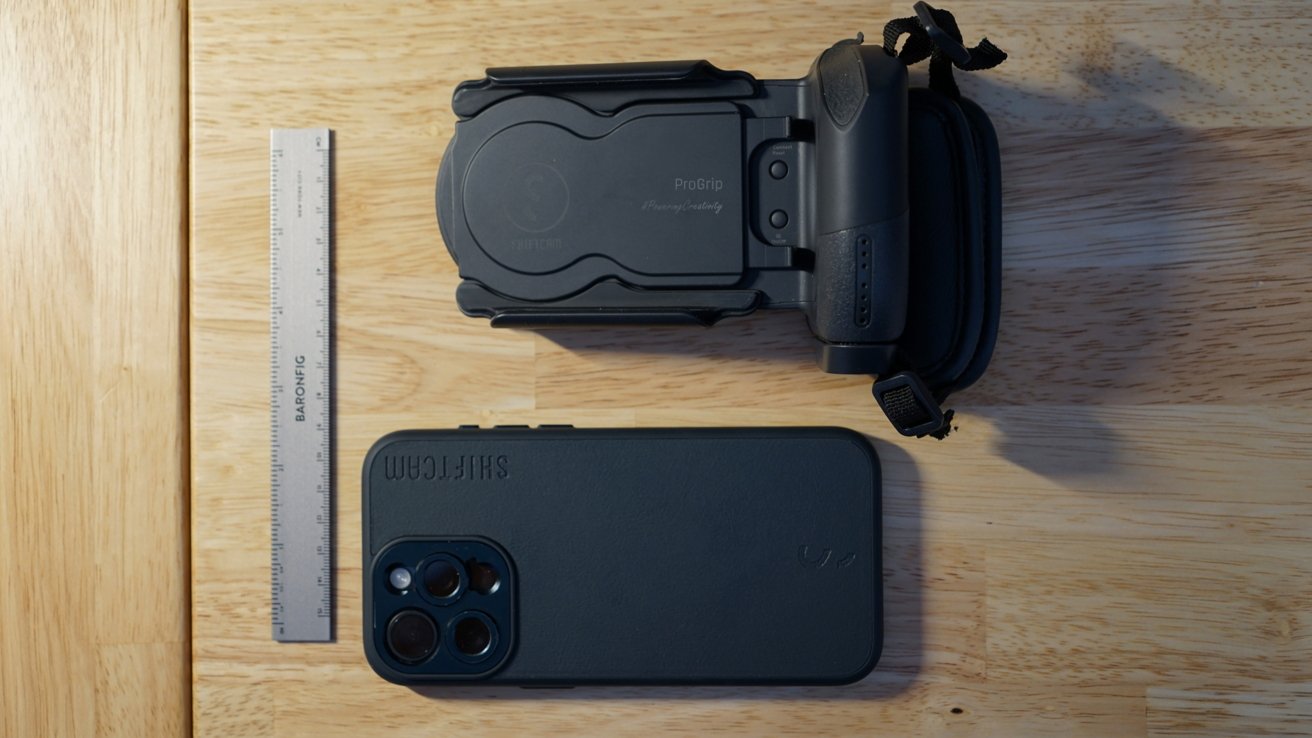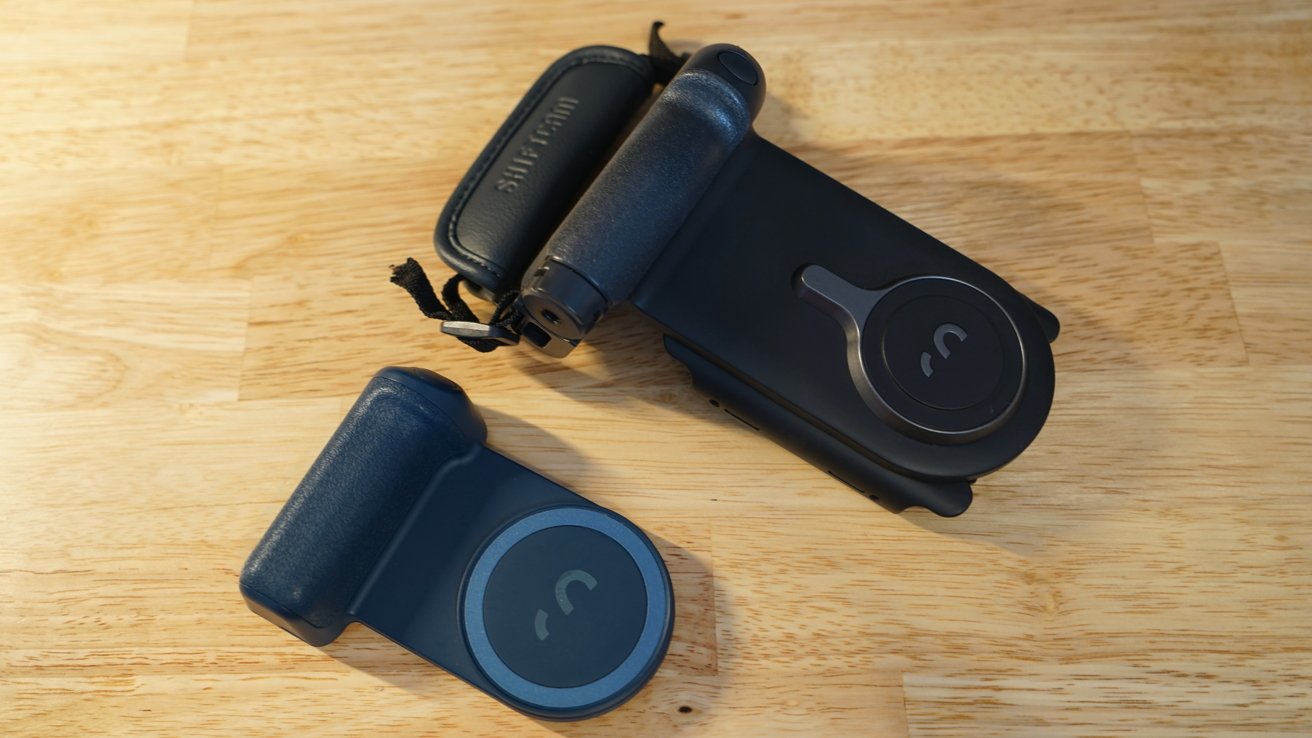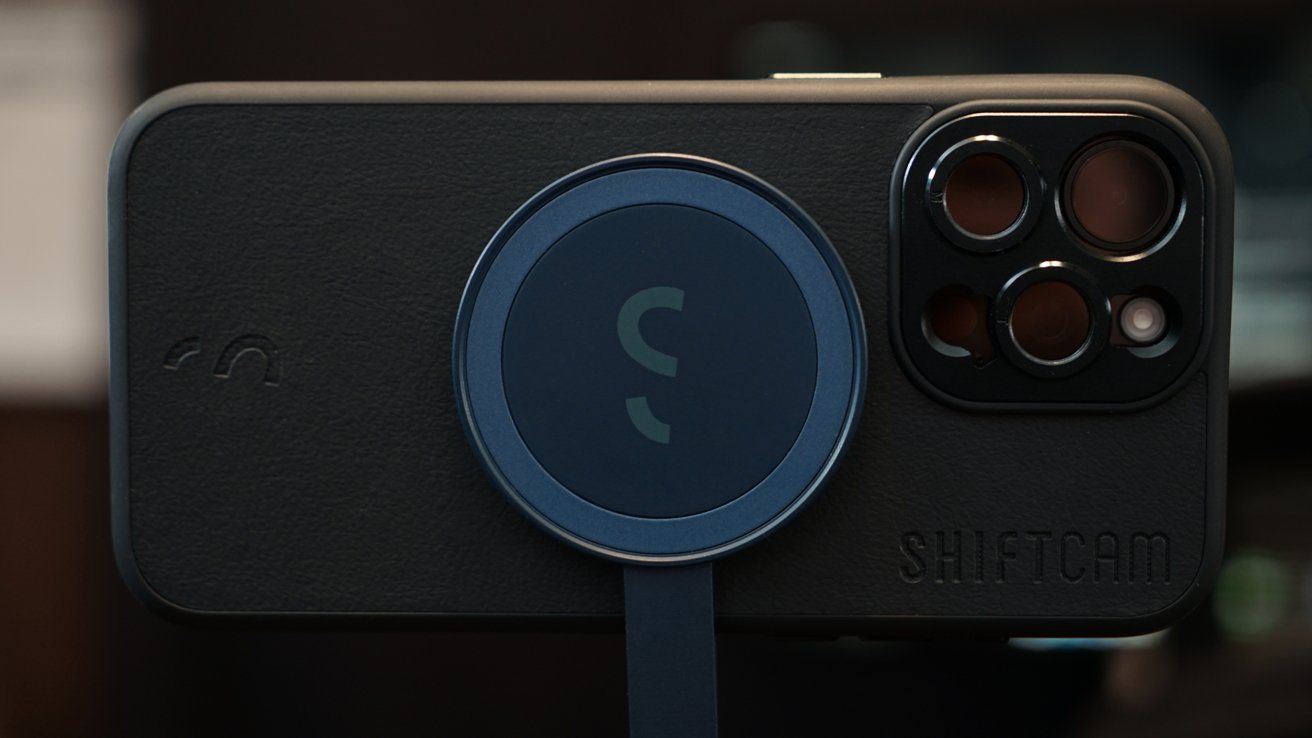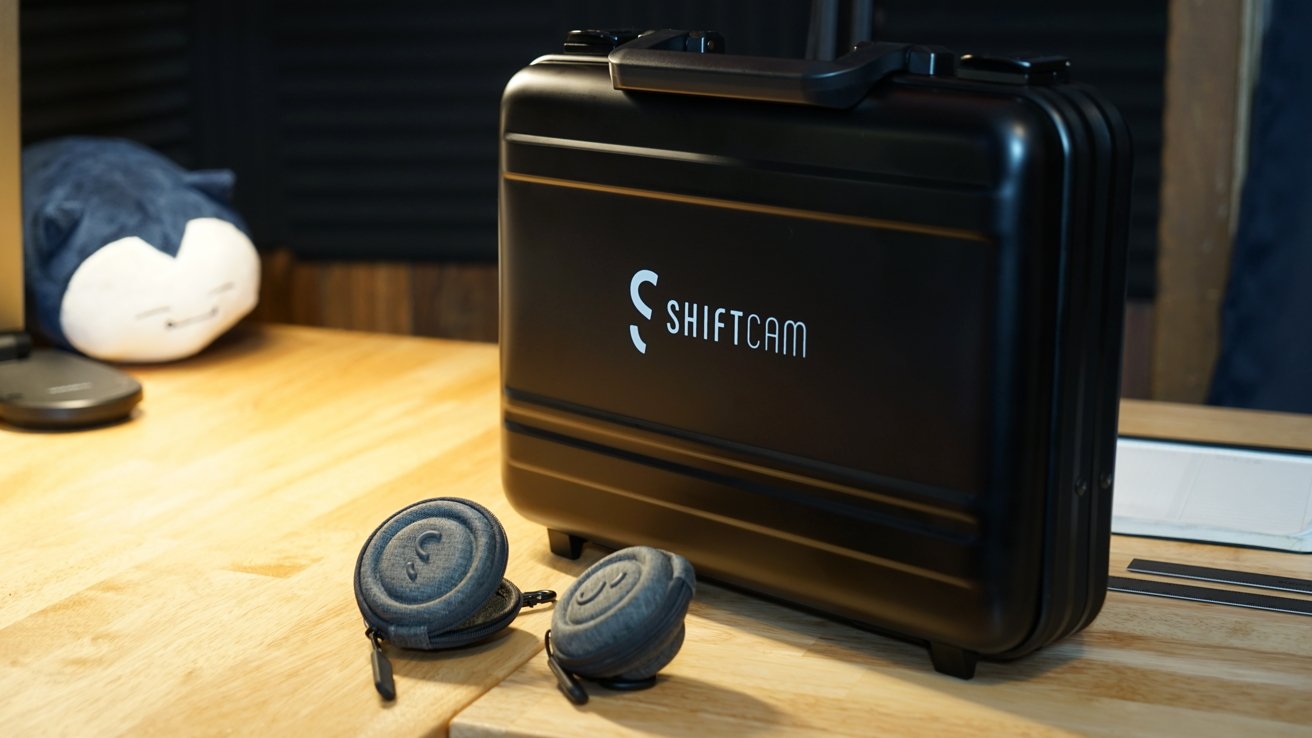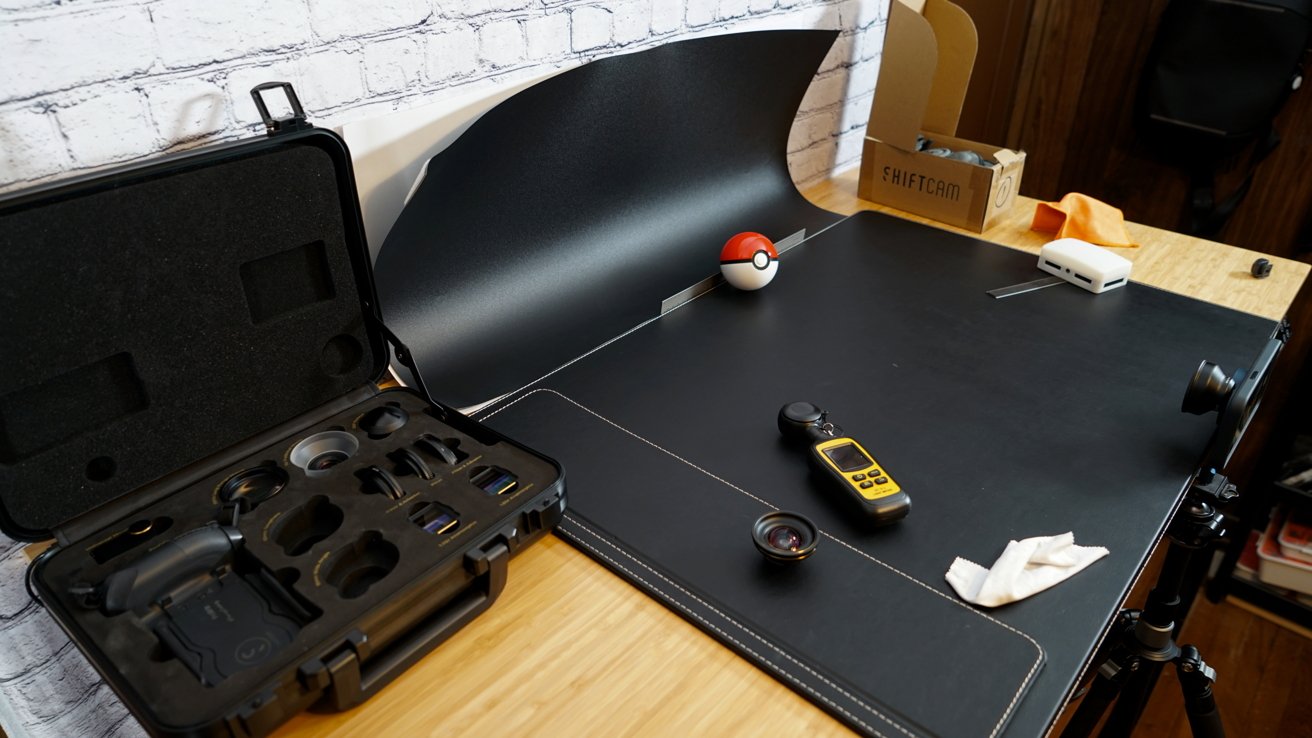The iPhone already offers the best camera you’ll always have in your pocket, but ShiftCam’s range of lenses makes the best even better in most cases.
The ShiftCam LensUltra Deluxe Kit includes seven lenses, three filters, and the ProGrip holder. It also comes with a universal clip-on lens mount, but an iPhone 15 case can be ordered separately if desired.
This review will focus on detailing each product that comes in the Deluxe Kit and how they work to enhance iPhone photos. The lenses and filters can be purchased separately, so you’ll find links to individual products at the end of each section.
ShiftCam is an interesting company that offers a range of accessories for everyone, from the casual vlogger to the professional photographer. I’ve previously reviewed the company’s SnapGrip, which is compatible with the lens mount case as an alternative to the ProGrip.
It’s a pricey system at just over $1,700 when not on sale, but that’s if you buy the entire kit. Some users may only need one or two lenses for their expected use case.
ShiftCam LensUltra Deluxe Kit review — seven lenses for your iPhone
Apple said owning the iPhone 15 Pro Max was like having seven cameras in your pocket. With the seven ShiftCam lenses, you can multiply the iPhone’s camera capabilities, but not one-to-one.
We’d love to say that seven lenses for seven cameras means 49 camera combinations, excluding filters, on iPhone. Still, not every lens will offer usable results with every iPhone camera.
In fact, through most of our testing, it seems the Main Camera is the best option for attaching a lens despite there being attach points on both the Main and Telephoto cameras. Especially since the telephoto is 120mm, which renders most of the attachments useless.
We’re unable to test the lenses with an iPhone 15 Pro with a 3x lens, but it also isn’t great with low light, and adding an external lens compounds that. So, while we can’t test it, we’re certain we’d see similar results.
Testing each lens showed consistency in detail capture, saturation, and a lack of unwanted distortion. We used a simple red and white Pokeball prop to test the lenses for easy white balance and saturation comparisons.
We’ve also included a ruler in most shots to provide a frame of reference for distortion.
16mm Wide Angle Lens
The 16mm Wide Angle lens is a 0.5x magnification that lets the user fit more in the image. The result is similar to the built-in 0.5x Ultra Wide Camera on iPhone, but lacks edge distortion and gets the advantage of thee large Main Camera sensor.
Having the ability to pull back from Apple’s default 24mm focal length can be a savior in several situations. It would be handy in tight spaces close to a subject, when capturing group photos, or when attempting to fit a particularly large piece of architecture in a shot.
There wasn’t any noticeable loss in color saturation, and the camera focused fine. A minimal increase in noise caused some detail loss in the texture of the black strip in the middle, but the difference is minimal.
The test subject is in a moderately bright room with a dark background, so it isn’t the most optimal shooting location. Distance from the subject will help eliminate any notable differences between using the iPhone lens and the attached ShiftCam lens.
This will be true for all of the attached lenses. The slight reduction in light-gathering capability due to adding layers of glass will mean more noise in most situations, but it should be negligible.
The lack of edge distortion means the entire image is usable. Also, unlike some lens attachments, there isn’t any vignetting around the edges.
The 16mm lens doesn’t work with the 120mm Telephoto camera on the iPhone. It causes the image to be foggy and out of focus.
75mm Long Range Macro Lens
The 75mm Long Range Macro Lens isn’t a lens type I’ve had experience with before. It allows the user to get extra close without physically shoving the lens into the subject’s space.
Unlike the iPhone’s built-in macro mode, the 75mm Macro Lens opens up the opportunity to zoom close to a subject without losing resolution.
The iPhone’s macro mode can be zoomed, so we tested framing the shot similarly between the software macro and physical ShiftCam lens. The result is strikingly different.
The iPhone’s image is well executed, even if the noise caused artifacts around the edges of the ball. This is due to a slight digital zoom at 2.5x in macro mode to achieve an equivalent 75mm focal length.
Compare that to the crisp image with pleasant bokeh captured by the ShiftCam 75mm Macro Lens. The texture of the black plastic is visible, while the edge of the ball fades as it exits the focus range.
Surprisingly, the 75mm Macro Lens performed well when paired with the 120mm Telephoto Camera too. The Pokeball doesn’t have much interesting detail at the macro range, so we snapped an image of a nearby cleaning cloth.
At this range, it is easier to focus by physically moving the camera into position rather than trying to tap and focus. The small stripe of focus running diagonally shifts dramatically at this zoom level, but it isn’t hard to capture an image handheld.
10x Traditional Macro Lens
The traditional 10x Macro Lens performs similarly to Apple’s built-in macro mode, but again, with all the benefits of the Main Camera. However, you’re going to need to be nearly touching the subject to capture image thanks to the 10mm to 15mm minimum focus distance.
The natural bokeh of the Macro Lens will be the first thing you notice. Backgrounds disappear in a blur of color, but parts of the subject too, depending on its size.
Since the iPhone’s macro mode is a software trick using the Main and Ultra Wide Camera, more of the image is in focus. The resulting image may not pop as much due to a lack of natural bokeh.
The 120mm Telephoto Camera doesn’t work well with the 10x Macro Lens. It results in blown-out highlights and an inability to focus.
Apple’s software trick is an excellent example of computational photography that comes in handy in a pinch. However, for more detailed, planned images, the 10x Macro Lens will win out almost every time.
The lens hood is removable if it gets in the way of a shot, but it also serves as a good judgment for finding the minimum focus distance.
60mm Telephoto Lens
The 60mm Telephoto Lens acts as a physical lens alternative to the digital 2x 48mm zoom. Like the other lenses in the set, it allows the user to take advantage of the Main Camera sensor without any software tricks or cropping.
The portrait range in photography is between 35mm and 75mm, and the best lens for which shot is highly debatable amongst photographers. The 60mm length is a little longer than the go-to 50mm portrait lens, so the subject will be a little closer with more background bokeh.
When compared to the 2x mode on the iPhone 15 Pro Max, the 60mm Telephoto Lens wins out easily. It only works when paired with the Main Camera, but the effect is worth it.
Those who like Apple’s software Portrait Mode will like the 60mm lens better for more natural bokeh. Of course, the software version allows for adjustable depth, but that isn’t an issue when subjects have clean outlines and soft backgrounds, thanks to the lens.
Optical zoom also helps when photographing distant subjects. It might allow a different perspective for a distant bit of nature or enable a better chance to capture an elusive pet.
The 120mm 5x zoom on iPhone 15 Pro Max goes further but at a sacrifice in quality and light gathering. Again, the Main Camera paired with an external lens like the 60mm Telephoto will win out easily, at least in resolution and noise.
200-degree Fisheye Lens
One of my favorite things about fisheye lenses is the ability to see regular spaces in entirely new ways. The 200-degree Fisheye Lens from ShiftCam is another quality piece of glass that can amplify your shooting ability.
Distance from a subject means less distortion while retaining that wide 200-degree field of view. The closer to the edge of the lenses an object is, the more distorted.
Move in close, and everything will warp around the center sphere. It enables ultra wide shots of towering buildings or wide selfie shots with a group of friends.
Unlike other Fisheye adapters, the 200-degree Fisheye Lens can capture an image without a vignette. That means less cropping and more quality images for every shot.
Apple has an Ultra Wide Camera on the iPhone at 0.5x magnification which can achieve a subtle fisheye effect when close to a subject. Like with the macro mode or Portrait Mode, it’s great in a pinch, but a physical lens will always be better.
1.33x Anamorphic and 1.55x Anamorphic
Shooting photos and videos with anamorphic lenses can provide a unique perspective and effects. It just requires practice and editing to get it right.
I don’t have experience with anamorphic lenses, but it is actually a simple effect that must be edited in software to achieve the desired result. The example images here show how the image looks when captured and what it looks like after you compensate for the distortion in the software.
The end result is a more panoramic view of the subject in some shots. It all really depends on what your end goal is. Some use anamorphic lenses to achieve a different bokeh style.
Light captured within the bokeh will take on a different shape based on the direction and strength of the anamorphic lens. The lenses we tested have a 1.33x and 1.55x multiplier.
Light flares also end up more pronounced when viewed through anamorphic lenses. Photos and videos will appear much more cinematic, though it does take some skill to achieve the desired end result.
For example, video captured with either anamorphic lens can be exported in a cinematic 21:9 aspect ratio. It’s like having panoramic mode without needing software to stitch pieces together.
ShiftCam LensUltra Deluxe Kit review — three filters, two adapters, unlimited combinations
The ShiftCam filter set includes three filters with adapters for the anamorphic lenses and camera mount — they attach to the standard lenses without an adapter. There’s a Circular Polarizing (CPL) filter, Variable Neutral Density (VND) filter with the 2-5 stop range, and a VND filter with 6-9 stop range.
The VND filters offer exposure control across a range of stops. If you’ve ever been in ultra bright outdoor settings and notice everything getting washed out by the sun, VND filters can help.
Rather than artificially lowering exposure using the software exposure slider, a VND filter can help achieve a desired exposure level. And they help in more situations than just bright ones.
For example, if you want to capture a long exposure of a stream by leaving the shutter open, you’re likely to overexpose the image. A VND filter will keep exposure down while capturing the moving stream.
The CPL filter serves as a glare filter using polarization. A camera captures what it can see, but reflective surfaces and water vapor in the air can cause a kind of fog or glare or occur.
Polarization eliminates this issue. If you’ve ever worn polarized sunglasses, you know the effect already.
These filters are useful in creating more dramatic shots than straight glass can offer. The included adapters allow them to be used with any lens or directly with the phone camera.
ShiftCam LensUltra Deluxe Kit review — ProGrip
The ProGrip is included in the LensUltra Deluxe Kit, but it could easily fill out its own review. The grip acts as a power bank, Bluetooth shutter, free-standing charging dock, and iPhone tripod mount.
The symmetrical clamp design ensures that any iPhone model will fit, which makes it more future proof than some accessories. It isn’t as simple as the SnapGrip for adding and removing the iPhone, but it is more sturdy.
Since the lenses add some weight to the iPhone, I’ve found using the ProGrip feels more sturdy. There’s no danger of the iPhone falling out of the grip due to a MagSafe magnet failing to hold on.
Note in the previous photos that the iPhone was attached to a MagSafe mount on a tripod. It is faster to rely on magnets than a screw-in mount if the iPhone remains stationary.
The ProGrip works best when away from the studio.
The handle has a 6,400 mAh battery that powers the mounted iPhone through Qi wireless charging — no MagSafe here. Also, the USB-C port in the base can charge devices like AirPods.
The base of the grip is wide enough to hold the iPhone upright in a makeshift stand. The iPhone mount can rotate for use in portrait or landscape.
There’s even a button that can be paired to the iPhone for use as a Bluetooth shutter. It recreates the volume up press to activate the shutter when in a camera app.
ShiftCam LensUltra Deluxe Kit review — Universal Lens Mount vs the iPhone Camera Case Mount (not included)
The LensUltra Deluxe Kit comes with a Universal Lens Mount that’s basically a simple clamp. It allows lenses to be used with many smartphone types by aligning the lens over the camera.
It is a less elegant solution than the iPhone Camera Case, but it gets the job done. Having the Universal Mount also means ensuring compatibility with the latest iPhone release while waiting for ShiftCam to update its case lineup.
The iPhone Camera Case has mounts over the Main Camera and Telephoto Camera. Augmenting the Ultra Wide Camera isn’t possible with the lens system.
If you’re going to invest in any ShiftCam lenses or the Deluxe Kit, I highly recommend getting the iPhone Camera Case. It is inexpensive compared to some cases and can be easily swapped out when not using the lenses.
Get the iPhone 15 ShiftCam Camera Case for $39.99. Make sure to select the correct case size and whether you’d like a screen protector added.
ShiftCam LensUltra Deluxe Kit review — Aluminum LensUltra Suitcase
There are two ways to transport the ShiftCam lenses — an included aluminum suitcase or lens zip up pouches. Both are included in the Deluxe Kit.
The aluminum suitcase is just a stellar way to transport the lenses, but it is large and bulky. Thankfully the lens zip up pouches allow you to carry only what is necessary for a given shoot.
The case weighs about 5 pounds fully loaded. It measures 1 foot long by 9 inches wide by 3.5 inches deep.
The Aluminum LensUltra Suitcase can’t be ordered separately. It is included in the Full and Deluxe kits.
Upgrading the iPhone camera
The iPhone is an unbelievable camera that is always with you. The combination of hardware and software makes it capable of capturing photos previously only possible with a large sensor camera.
Adding hardware tools to your iPhone camera setup can help improve what’s possible. However, not all camera tools are created equally and can end up making the resulting image worse, not better.
The ShiftCam LensUltra Deluxe Kit provides plenty of equipment options that can upgrade your iPhone photography. The ProGrip coupled with lenses and filters offers a multitude of possible combinations that will meet nearly every need.
Whether you purchase a few individual lenses or the entire Deluxe Kit, I’m sure it’ll provide some unique opportunities for your photos.
ShiftCam LensUltra Deluxe Kit review – Pros
- Well-made glass that doesn’t distort photos
- Variety of lens options will meet any photographer’s needs
- Included Universal Lens Mount ensures compatibility across iPhone generations
- Simple mounting system for lenses and filters
- Unique aluminum carrying case that makes the Deluxe Kit bundle feel more premium
ShiftCam LensUltra Deluxe Kit review – Cons
- ProGrip feels outdated with clamps and Qi charging
- iPhone Camera Case not included
Rating: 4 out of 5
The ShiftCam LensUltra Deluxe Kit is an excellent system, though not without some minor quibbles. We’d like it better if this already expensive kit enabled the user to choose their needed iPhone case at checkout rather than adding a $40 premium.
Also, the ProGrip is great for the utility it offers, but the clamp is difficult to deal with, and the product is dying for a MagSafe upgrade. Marrying the SnapGrip with the ProGrip could create a really clever product.
Where to buy the ShiftCam LensUltra Deluxe Kit
If you’ve been keeping up with prices throughout the review, you may have come to the conclusion that the complete kit will be very pricey. You’re not wrong, but buying the full set at the current discounted prices would save you at least $200 over buying each item individually, not to mention bonus accessories like the aluminum case.
The ShiftCam LensUltra Deluxe Kit is normally priced at $1,720 but is discounted by 30% to $1,199. The kit is in high demand, so orders made in mid to late March won’t be fulfilled until late April restock, but those put on backorder will get a free ProLED Bi-Color Light Panel.
This story originally appeared on Appleinsider

